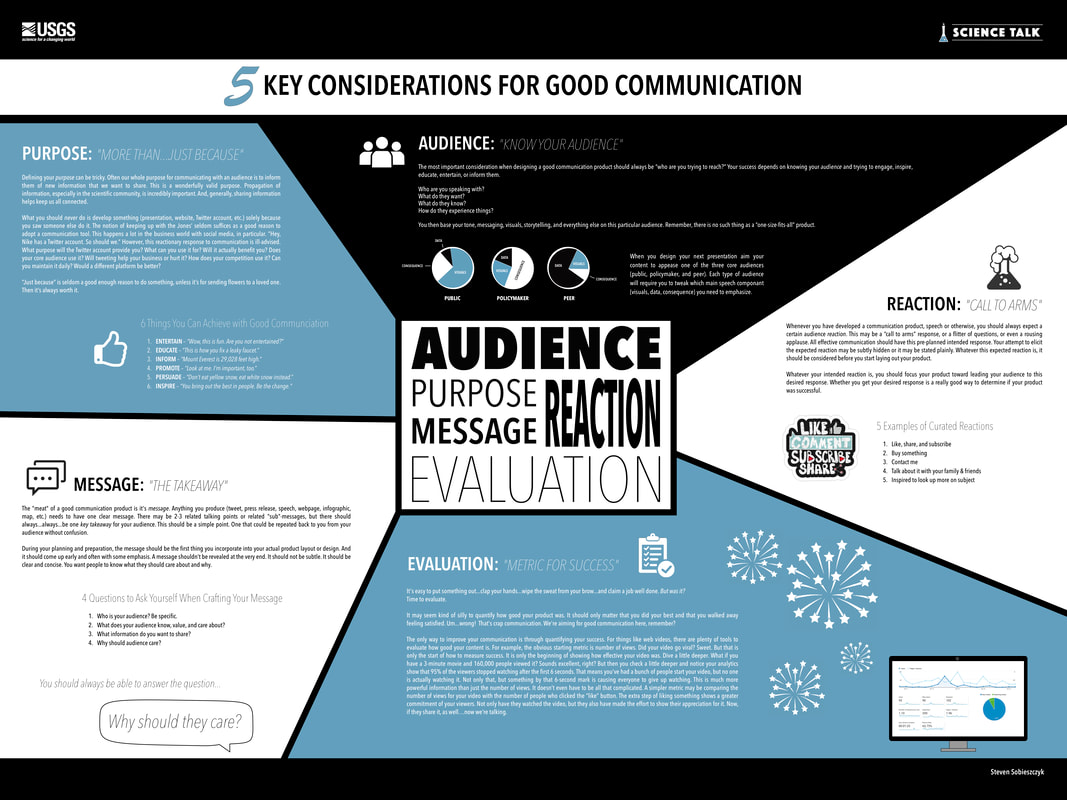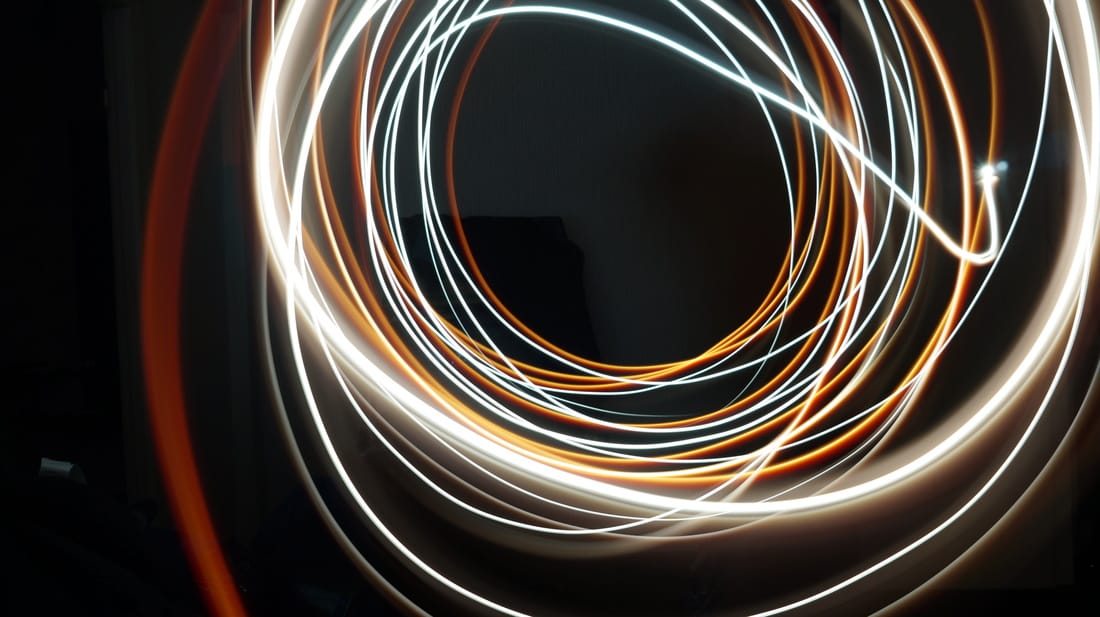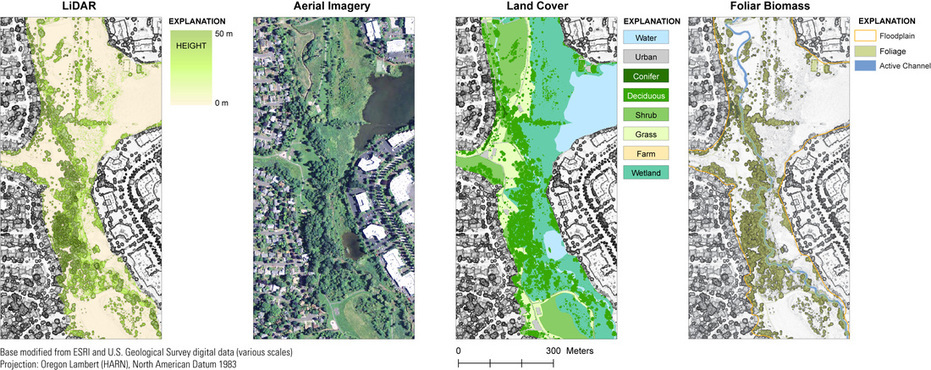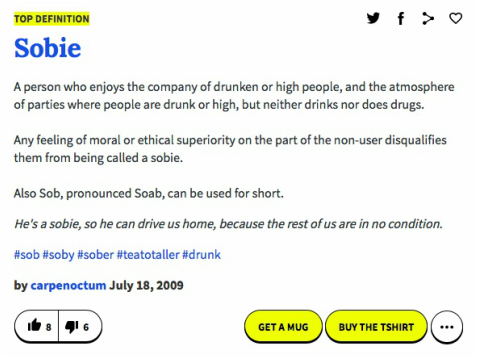|
Over the last few years I've begun to notice that there is one thing that seems to be the cause of and solution to all life's problems.
And unlike what the Simpson's say, its not alcohol. It's lasers. I am no leader.
I think I would be alright as one. My future goals hint at becoming one. However, no matter what I do, I still don't feel like a person that others can get behind. But to get ready for the day when I will hopefully become a leader, I've started to dabble at a few things.
Hopefully someday I'll be ready to be a leader. I'm a different kind of scientist. Or, at least, I feel different.
I'm as passionate about doing my research as I am about sharing what I learn. See, I have a simple guiding principle that defines how I do science. It's my "50/50 Rule." 50% doing. 50% sharing.* * I need to give some credit to Bill Nye "the science guy" and Randy Olson, "Don't be such a scientist" for the inspiration growing up. Making science interesting and accessible is always a part of sharing it. Communication is very much like marketing, where how you say something depends entirely on who you are talking to. For example, this blog is for casual readers with various types of education and background. I prefer to write content here in a very causal and conversational tone. I'm okay starting a sentence with a conjugation and ending one with a preposition. Grammar rules be damned. That is a conscious style choice that I think works best for my targeted audience.
I've been playing around online a lot lately. I have some new things I've been working on that require a bit of time googling myself. I have discovered a few negative user comments that I wasn't aware of, but then I came across this little ditty, too. This made me smile.
Very appropriate word to describe me during my younger days. However, as an adult, I now enjoy a cocktail. But for those first 21 years of my life, this shit was spot on. Good job internet. And Karma. Oh. And coincidence. Bit of that, too.  I recently gave a presentation on how to talk science to normal people. After I finished there was the usual question and answer. One of the audience asked me a fairly simple question, which I sadly fumbled. "How do you explain scientific consensus to someone who doesn't agree?" I don't remember the rambling answer I gave at the time, but the question has been stuck with me ever since. I finally came up with what I think is a pretty decent answer and it involves cake. The first thing a scientist needs to decide when explaining scientific consensus is whether it is truly "science" or "scientific consensus" that is being questioned. If a person doesn't believe in science because it conflicts with their faith...no amount of explanation is going to persuade that individual. Faith is the belief in something without evidence. Science is knowledge gained through studying evidence. They are diametrically opposed. Antonyms, if you will. No single conversation will cause someone to lose their faith. But if the question is genuinely, "how do you explain scientific consensus?" then that can be described thusly... Time to talk cake. I'm going to tell you a secret. I know what scientists fear most. You ready? Here goes...
Being wrong. That's it. It's fairly simple. In a world where politics, entertainment, and sports all teeter on the brink of ridiculousness and exaggeration, scientists work their best to remain above the fray. They seek truth. They seek knowledge. They want to learn how things work. They want to understand how things look, act, grow, or change. They want to be able to predict the future based on what has happened in the past. They do their best to follow simple rules.
I am a scientist. I am inquisitive, passionate, and disciplined. I care about accuracy, repeatability, and applicability. I believe there is a need for more scientists to speak up. Therefore, I started this website to put myself out there. Like other scientists, I feel the constant pressure that our research is constantly dismissed, overlooked, or refused. That some people think scientists are kooks or crooks. That we make stuff up to make things harder on everyone else. Those type of claims couldn't be farther from the truth. Our livelihoods and reputations absolutely hinge on how good our science is. We want to help. We provide answers and insights that others can use to decide the best solution for life's problems. If we make mistakes, people may suffer. We didn't go to school for all those years just to throw it away on something frivolous. Mistakes happen. It's our job to make sure they don't. |
About BlogWhat most scientists don't realize is the psychology of communication. If no one is listening to you, then you are not communicating effectively. So how do you get people to listen? It's easy. Here's how.... DisclaimerThese are solely my thoughts and opinions and not those of my employer(s). Archives
June 2019
Categories |
|
< HOME
|
Copyright © 2016







 RSS Feed
RSS Feed